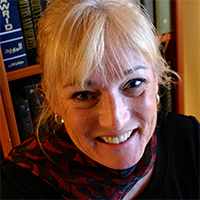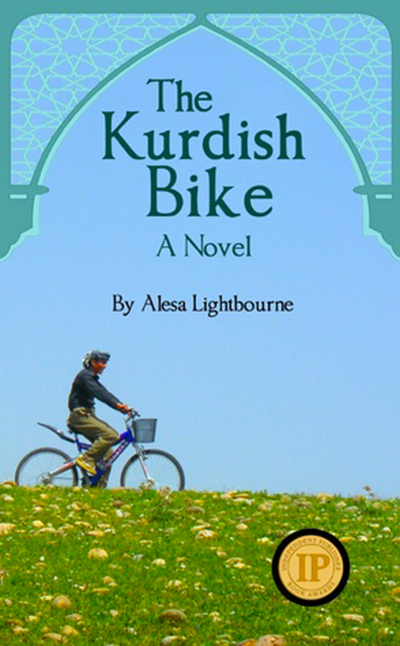 The Kurdish Bike
The Kurdish Bike
In Alesa Lightbourne's literary novel The Kurdish Bike, narrator Theresa Turner is an American woman in late middle age who is recovering from a divorce that left her penniless. When she takes a job as a teacher at a for-profit school in Kurdish Iraq, she faces extreme challenges of a different sort, including a school administrator who demands inflexible teaching methods, cultural restrictions on women's freedom, and language barriers. She buys a bike and sets out to explore the war-torn countryside. Along the way, she enters into intense friendships with Ara, a Kurdish widow, and her daughter Bezma. These bonds sustain Theresa through a challenging year of growth and acceptance.
Jendi and I agreed that The Kurdish Bike was the strongest book in this year's contest. The writing is compelling and the dialogue hits just the right tone. The plot, with its many unexpected twists and turns, keeps the reader turning the page. A subplot involves the practice of female genital mutilation; this is handled with dignity and does not include gratuitious descriptions of the practice. I especially appreciate that the writing is well edited for content with virtually error-free text.
The titular bike is a strong metaphor for Theresa's desire to explore both the people and locale surrounding the school:
"The minute classes are over the next day, I take a test ride down to the village, bundled up in a jacket and black balaclava designed to make me look male. Bracing cold whips my eyes, but I do a 'yippee' anyway. The bicycle has to be one of the greatest inventions of all time. Cheap. Simple. A ticket to freedom... I keep it parked next to my bed and name it the Blue Angel."
The book is based on the author's personal experiences and at times reads like a memoir. In fact, when I started the book I assumed I was reading a memoir until I checked its status in the contest entry database. It took me a chapter or two to settle into the book as fiction, but after that, I couldn't put the book down. I learned a lot about Kurdish life, especially the role of women, and appreciate the extensive glossary explaining Kurdish terms.
I had a hard time understanding how and why Theresa bonded so quickly with Ara and Bezma, especially because of language challenges. I would have enjoyed a few more classroom scenes, but that is surely the result of my love for stories that take place in academic settings.
The book is well-bound with readable print and formatting. The cover depicting a smiling woman riding a bike alone was an excellent choice. I would like to congratulate Alesa Lightbourne for this outstanding achievement.









